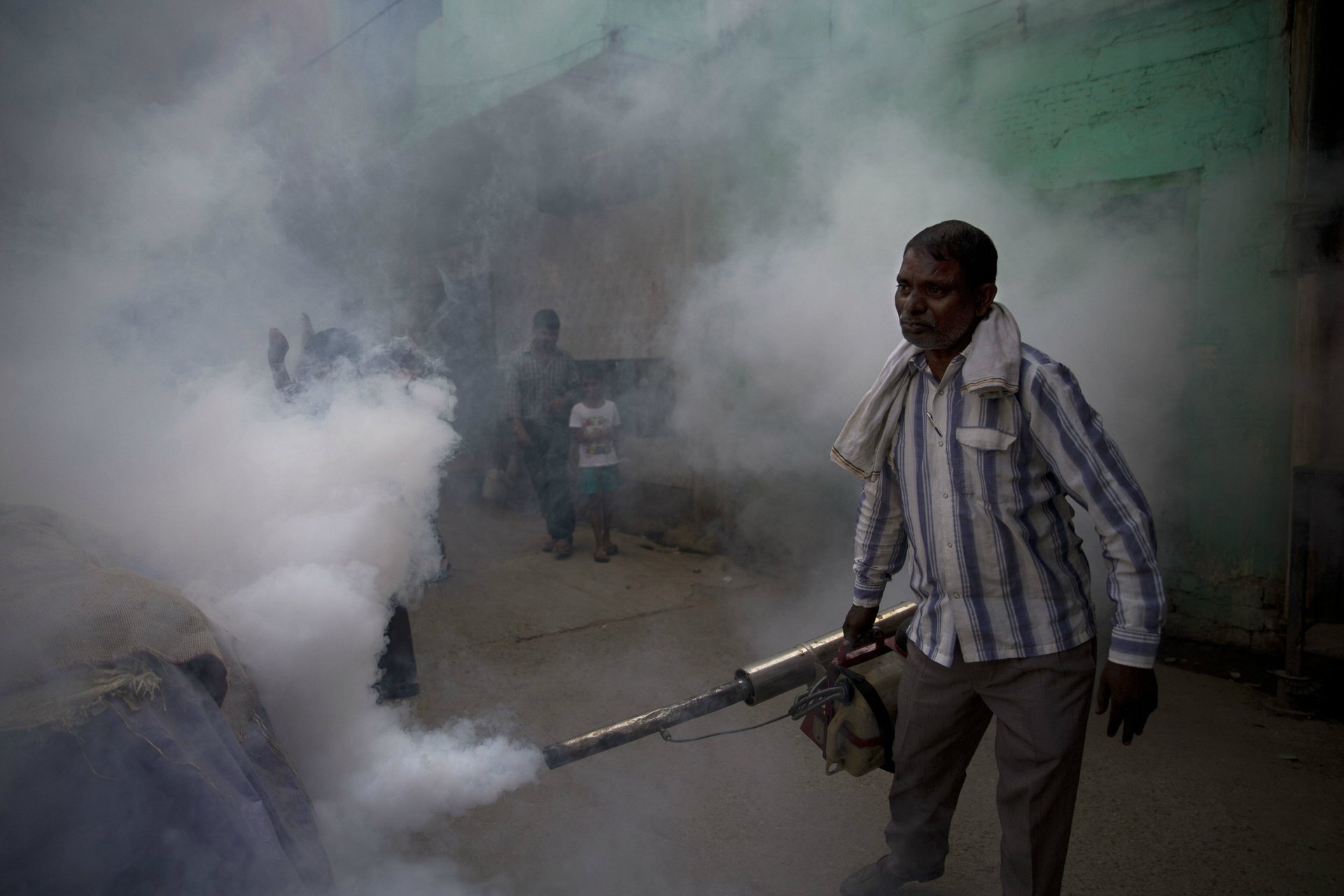Delhi is fighting its worst dengue outbreak in five years—and it might get worse
Mosquitoes have killed the most humans in history, and they turn their attention on the citizens of Delhi annually. This year, however, things are far worse.


Mosquitoes have killed the most humans in history, and they turn their attention on the citizens of Delhi annually. This year, however, things are far worse.
Last week alone, some 600 new cases were reported from the capital city, forcing the six-month-old government led by the Aam Aadmi Party to cancel leaves granted to doctors. Since January 2015, Delhi has seen a total of 1,872 dengue cases with nine deaths.
“This is the worst outbreak in the last five years and it is going to further increase as the weather remains humid,” YK Mann, director of the Municipal Corporation of Delhi, told news agency AFP.
In 2010, some 1,933 cases of dengue were reported in September and October in Delhi.
“The disease normally peaks in the second and third week of October, so the numbers are going to go further up,” Dr Ekta Gupta, additional professor at the department of virology, Institute of Liver and Biliary Sciences, told the Hindustan Times newspaper.
No beds
India’s capital city does not have enough hospital beds for dengue patients. A seven-year-old boy died last week, after five hospitals allegedly refused to treat him. The child’s parents—upset over their son’s death—jumped to their deaths from a building.
After their suicide, the Delhi state government has sent legal notices to the hospitals.
On Sept. 14, Jagat Prakash Nadda, union minister of health and family welfare, tweeted about how the central government plans to tackle the outbreak.
Meanwhile, the Delhi state government has asked hospitals to procure 1,000 new beds for dengue patients. It has also asked hospitals to postpone non-critical surgeries. Fumigation drives have been organised all across the city.
“The government will not tolerate any laxity in carrying out house-to-house visits,” Satyendra Jain, Delhi’s health minister, said on Sept. 14. “We should ensure there are no breeding grounds for mosquitoes,” Blood banks have also been asked to stock adequate platelets and ensure availability at nominal rates.
The World Health Organisation has declared dengue a hyperendemic disease—which means it has a high prevalence rate—in India, and a leading cause of hospitalisation and death among children.